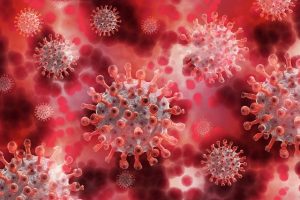Nature Communications: Fasting plus vitamin C effective for hard-to-treat cancers
- Mifepristone: A Safe and Effective Abortion Option Amidst Controversy
- Asbestos Detected in Buildings Damaged in Ukraine: Analyzed by Japanese Company
- New Ocrevus Subcutaneous Injection Therapy Shows Promising Results in Multiple Sclerosis Treatmen
- Dutch Man Infected with COVID-19 for 613 Days Dies: Accumulating Over 50 Virus Mutations
- Engineered Soybeans with Pig Protein: A Promising Alternative or Pandora’s Dish?
- Severe Fever with Thrombocytopenia Syndrome (SFTS): A Tick-Borne Threat with High Mortality
Nature Communications: Fasting plus vitamin C effective for hard-to-treat cancers
- Red Yeast Rice Scare Grips Japan: Over 114 Hospitalized and 5 Deaths
- Long COVID Brain Fog: Blood-Brain Barrier Damage and Persistent Inflammation
- FDA has mandated a top-level black box warning for all marketed CAR-T therapies
- Can people with high blood pressure eat peanuts?
- What is the difference between dopamine and dobutamine?
- How long can the patient live after heart stent surgery?
Nature Communications: Fasting plus vitamin C effective for hard-to-treat cancers.
In studies in mice, the researchers found that the combination slowed tumor progression in multiple mouse models of colorectal cancer; in some mice, it led to disease regression. The findings were published in the journal Nature Communications.
“We have shown, for the first time, how to effectively treat cancer with a completely nontoxic intervention,” said the study’s corresponding author, Valter Longo, professor of geriatrics and biological sciences at the USC Longevity Institute. “We’ve taken two treatments that have been widely studied as interventions to slow aging — a diet that mimics fasting and vitamin C — and combined them as an effective cancer treatment.”

While fasting remains a challenging option for cancer patients, a safer and more viable option is a low-calorie, plant-based diet that allows cells to respond, the researchers said. as if the body is fasting.
Their findings suggest that a less toxic treatment, a fasting-mimicking diet plus vitamin C, has the potential to replace more toxic treatments.
Previous studies on the anticancer effects of vitamin C have been inconsistent. However, recent studies are starting to show some efficacy, especially in combination with chemotherapy.
In the new study, the team wanted to find out whether a diet that mimics fasting could enhance the anticancer effects of high-dose vitamin C by creating an environment that is harmful to cancer cells but still safe for normal cells.
“Our first in vitro experiments showed significant effects,” Longo said. “When used alone, a fasting-mimicking diet or vitamin C can reduce cancer cell growth and cause a slight increase in cancer cell death. But when they are used together, they have dramatic effects, killing nearly all cancer cells. .”
Longo and his colleagues found this strong effect only in KRAS-mutated cancer cells, considered one of the most challenging targets in cancer research.
These mutations in the KRAS gene suggest that the body is resisting most anti-cancer treatments, which reduce patient survival.
KRAS mutations occur in about a quarter of human cancers, and mutations are estimated to occur in up to half of all colorectal cancers.
The study also provides some clues as to why previous research on vitamin C as a potential anti-cancer therapy has shown limited effects.
On its own, vitamin C treatment appears to protect cancer cells by increasing levels of ferritin, a protein that binds iron, triggering KRAS-mutated cells.
But by reducing the levels of ferritin, the scientists managed to increase the toxicity of vitamin C to cancer cells.
In this finding, the scientists also found that colorectal cancer patients with high iron-binding protein levels had lower survival rates.
“In this study, we observed how rapidly mimicking dietary cycles could enhance the efficacy of pharmacological doses of vitamin C against KRAS-mutant cancers,” said study co-author Maira Di Tano of the IFOM Molecular Oncology Research Center in Milan, Italy. . “This is achieved by regulating iron levels and molecular mechanisms involved in oxidative stress. The findings specifically target a gene that controls iron levels: heme oxygenase-1.”
Previous research by the research team has shown that fasting and fasting-mimicking diets can slow cancer progression, making chemotherapy more effective on tumor cells, while protecting normal cells from chemotherapy-related side effects.
In mouse models of breast cancer and melanoma, the combination enhanced the immune system’s antitumor response.
Scientists believe that treating cancer will eventually use low-toxic drugs, in a similar way that antibiotics are used to treat infections that kill certain bacteria , but can be substituted with other drugs if the first drug doesn’t work.
To get there, they said, they needed to first test two hypotheses: that their drug-free combination intervention would work in mice, and that it looked promising in human clinical trials.
In the new study, they say they have demonstrated both. At least five clinical trials , including one in patients with breast and prostate cancer at the University of Southern California, are now investigating the effects of a fasting-mimicking diet in combination with different anticancer drugs.
References:
A combo of fasting plus vitamin C is effective for hard-to-treat cancers, study shows
Maira Di Tano et al, Synergistic effect of fasting-mimicking diet and vitamin C against KRAS mutated cancers, Nature Communications (2020).
Nature Communications: Fasting plus vitamin C effective for hard-to-treat cancers
(source:internet, reference only)
Disclaimer of medicaltrend.org
Important Note: The information provided is for informational purposes only and should not be considered as medical advice.



